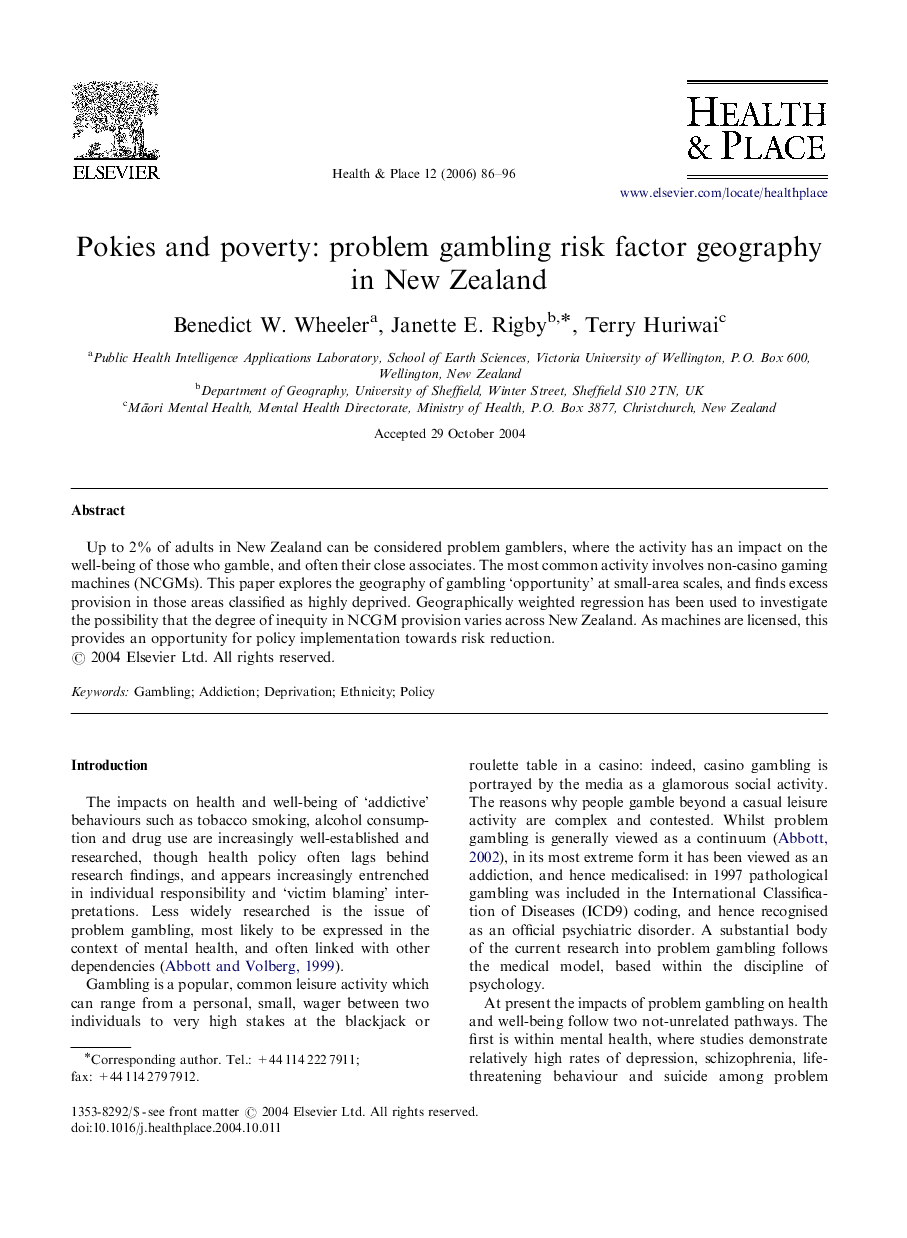| Article ID | Journal | Published Year | Pages | File Type |
|---|---|---|---|---|
| 1049071 | Health & Place | 2006 | 11 Pages |
Abstract
Up to 2% of adults in New Zealand can be considered problem gamblers, where the activity has an impact on the well-being of those who gamble, and often their close associates. The most common activity involves non-casino gaming machines (NCGMs). This paper explores the geography of gambling ‘opportunity’ at small-area scales, and finds excess provision in those areas classified as highly deprived. Geographically weighted regression has been used to investigate the possibility that the degree of inequity in NCGM provision varies across New Zealand. As machines are licensed, this provides an opportunity for policy implementation towards risk reduction.
Related Topics
Health Sciences
Medicine and Dentistry
Public Health and Health Policy
Authors
Benedict W. Wheeler, Janette E. Rigby, Terry Huriwai,
